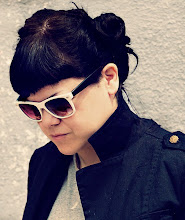 Le Chat Noir (French for "The Black Cat") was a 19th-century cabaret
Le Chat Noir (French for "The Black Cat") was a 19th-century cabaretin the bohemian Montmartre district of Paris.
It was opened on18 November 1881 at 84 Boulevard Rouchechouart
by the artist Rodolphe Salis,
and closed in 1897
(much to the disappointment of Picasso and others
who looked for it when they came to Paris for the Exposition in 1900).
Perhaps best known now by its iconic Théophile-Alexandre Steinlen poster art,
in its heyday it was a bustling nightclub — part artist salon,
part rowdy music hall, partially due to an illegal piano.
The cabaret published its own journal Le Chat Noir.
It began as a small, two room affair,
but within three and a half years its popularity forced it to move
into larger accommodations a few doors down.
Salis most often played, with exaggerated, ironic politeness,
the role of conférencier (post-performance lecturer, or MC).
It was here that the Salon des Arts Incohérents (Salon of Incoherent Arts),
the "shadow plays" and the comic monologues got their start.
According to Salis:
"The Chat Noir
is the most extraordinary cabaret in the world.
You rub shoulders with the most famous men of Paris,
meeting there with foreigners from every corner of the world."
Famous patrons of the Chat Noir included
Adolphe Willette, Caran d'Ache,
Emile Cohl, Paul Verlaine,
Henri Rivière, Claude Debussy, Erik Satie,
Charles Cros, Jules Laforgue,
Charles Moréas, Albert Samain,
Emile Goudeau, Alphonse Allais,
Maurice Rollinat, Maurice Donnay, Armand Masson,
Aristide Bruant, Paul Signac,
Yvette Guilbert, August Strindberg,
George Auriol.









![Validate my Atom 1.0 feed [Valid Atom 1.0]](valid-atom.png)